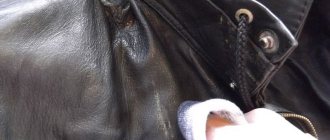Washing the body of the deceased is a strictly mandatory procedure and must be performed according to the rules that people have followed for many centuries. If this is your first time encountering such a problem, then contact a funeral agent for help; as a rule, you can contact them around the clock.
Is it possible for relatives to wash the deceased?
Washing is a mandatory element for the transition of the soul to a new life. The family must help the deceased. The established tradition allows close relatives, friends, and specially trained people to wash the deceased. There are no strict restrictions.
Recommendations for washing:
- people of the same sex as the deceased should be selected;
- desire to participate in the process;
- young Christians, pregnant women, young girls should refrain from the ritual of washing;
- relatives are allowed to be present in the room without participating in the process.
Funeral arrangements and preparations are carried out in accordance with established traditions.
To avoid conflict situations, funeral service employees recommend adhering to rituals. The main rule for completing the procedure is a clean body. If a loved one cannot recover after death, the deceased is washed by specially trained people.
The cleanliness of the dead is an important requirement for funerals for reasons of faith, hygiene and aesthetics. A dirty body loses its presentable appearance and emits an unpleasant odor. The process is caused by the decomposition of soft tissues. During the procession, blood may leak from the remains if there is injury or infection. In such cases, it is recommended not to open the coffin lid. Believing relatives invite the priest to read prayers.
Carrying out ablution of the deceased: rules and tips
Stages:
- All intimate places are covered with a sheet and washed covered, having previously wrapped your hands in a piece of cloth.
- The nose and mouth are not rinsed, but simply wiped with a damp piece of cloth.
- After completing all the above points, you can proceed to all other areas of the body. The procedure begins on the right side and uses a wild cider (jujube) leaf. Before use, the leaves need to be crushed, put in water and shake the vessel well until foam appears in it.
- This foam is used to wash the head of the deceased and all remaining parts of the body. If necessary, repeat the procedure several times (believers insist that this number must be odd).
- When the deceased is washed for the last time, camphor is added to the water (it helps slow down the decomposition process and drives insects away from the body of the deceased).
- Remember! Children and pregnant women should not be present during ablution.
After the procedure, the body is dried and wrapped in a shroud. The whole process is not difficult to complete, but it is advisable to do it outside of your home.
Important rules:
- 60 minutes after death. During this time, the body cools down and takes the correct position.
- The procedure should be performed during daylight hours. Traditions do not allow this after sunset.
- The water should be poured out in a deserted place.
- Soap and towels must be disposed of after ablution (on the 40th day from the date of death).
- Clothes, including underwear, and the bed on which a person died cannot be given away or thrown away - they should be burned (but after burial).
- You need to dress the deceased in everything new, and also make sure that the size of the clothes fits him. If there are no new things, you can wear used ones, only clean ones and not red. Preferably those that a person loved during his lifetime.
- A cross is placed around the neck of the deceased, even if he never wore one during his lifetime.
- If the deceased was a military man during his lifetime, then it is advisable to bury him in uniform and with awards.
- A crown is placed on the forehead of the deceased, on which are depicted: the Mother of God, Jesus Christ and John the Baptist with the words of the Most Holy Song.
- A handkerchief with a cross or icon is placed in the hands of the deceased.
If a person dies on a church holiday, then certain canons are observed during burial. A simple person cannot know them. In order for everything to be done correctly, the funeral should be entrusted to those people who know all the subtleties and nuances of this procedure.
There has been grief in your family and there is absolutely no energy to prepare for the funeral, then we recommend ordering a full range of ritual services. This will free you from additional stress, and the cost of our service is lower than in government agencies.
+375 29 338-83-83
Source: https://bel-ritual.by/info/kak-pravilno-myt-i-odevat-umershego
How to properly wash at home
The modern ceremony is performed by morgue workers or employees of a funeral agency. If you can’t organize the procedure, you can wash the deceased at home yourself.
For manipulation, it is necessary to prepare a room in the apartment, certain items:
- oilcloth, aprons, gloves, face masks;
- jug, soap, sponge, water, towel;
- clothing for the deceased after washing.
Home ritual for Orthodox Christians involves an algorithm of actions:
- Taking things off.
- Washing.
- Dressing in clothing, placing the corpse in a coffin.
The correct positioning of the body on the floor or a special bench will simplify the procedure. A table or other surface should be covered with oilcloth, absorbent fabric, and the body should be placed with its feet towards the door. You can place icons in front of your face. It is necessary to tie the jaw with a towel.
Relatives may remain in the room and do not take part in washing the deceased.
Sometimes it is not possible to remove old clothes from the body without difficulty. You can use scissors. For the sake of humanity and respect, intimate areas are covered with cloth.
The tradition of ablution in different religions
The burial process is determined by what culture and religion the deceased belongs to. The rules of rituals are tied to confessions and carry deep symbolic meaning.
In Islam, for example, the deceased is washed repeatedly and using special compounds and incense. The body of a Muslim is thoroughly cleaned, with the exception of obvious damage to the remains that does not allow washing or that may occur after ablution.
The tradition of ablution in Islam
There are no special principles in Buddhism - washing the deceased must be done according to the beliefs of a particular ethnic diaspora or community.
In Orthodoxy and Catholicism, washing involves dressing the deceased in clean white or dark clothes. The purpose of all ritual actions is to cleanse the body before the funeral of a Christian and his burial.
Post-mortem washing depends on the region of residence of the deceased. There is a general tendency to abandon archaism. Preparing the deceased and washing has a meaning, devoid of mysticism - to prepare a person for the last meeting with the living in the process of farewell and funeral. The ablution service is often ordered at the morgue.
What to do with soap after a deceased person and where to pour the water
After washing, there are things left that need to be disposed of:
- soap used to wash the deceased;
- dirty water;
- jug;
- crest;
- old clothes;
- oilcloth, gloves, masks, aprons.
Objects absorb the energy of death. In ancient times, there was a ritual for getting rid of things. After washing, the water is poured onto the corner of the house where nothing grows. People believed that if you stepped on a piece of land, a healthy person would become ill.
The jug is broken into pieces and thrown into the ravine. You can leave small fragments at a road intersection. The ritual will help to avoid troubles and return the soul of the deceased to the world of living people. Soap, comb, towel and other items should be buried or burned.
The attributes used for washing can be used to perform black magic.
There are different beliefs:
- reading a spell over the soap that was used in the washing process will help in the treatment of diseases;
- a piece of the deceased's clothing inside the door frame will drive away troubles;
Psychology does not deny the energetic connection between living things and objects that were used during the procedure. To avoid nightmares and conflict situations with family members, experts advise getting rid of all attributes. It is prohibited to bring mourning wreaths into the house after the funeral. It is prohibited to use objects used for washing as amulets.
Washing the body of the deceased
Links to theological primary sources and commentary:
[1] Fard Kifaya is something that is obligatory for all believers and when performed by any of them, the obligation is removed from all. If it is not committed by any Muslim, then the sin falls on everyone living in the area.
[2] Sidr - lotus; used as soap. In modern practice, any fragrant cleanser can be used.
[3] Ihram is a special robe worn by a pilgrim during a pilgrimage and symbolizing a special state of ritual purity. For men, it consists of two white cloths.
[4] See: al-Bukhari M. Sahih al-Bukhari. In 5 vols. T. 1. P. 378, hadiths No. 1265–1268.
[5] The sequence is as follows: father of the deceased, grandfather, son, grandson, brother, nephew, uncle, cousin. The religiously literate is more important than the elderly.
[6] See: al-Zuhayli V. Al-fiqh al-Islami wa adillatuh. In 11 vols. T. 2. S. 1484, 1485; al-Zuhayli V. Al-fiqh al-Islami wa adillatuh. In 8 vols. T. 2. P. 348, 349; Amin M. (known as Ibn 'Abidin). Radd al-mukhtar. T. 2. P. 198, 199.
[7] Ibn Majah M. Sunan. P. 161, hadith No. 1461 “mavdu'”; Ibn Qudama M. Al-mughni [Enricher]. In 12 volumes. Beirut: al-Fikr, 1992. Vol. 3. P. 371. According to muhaddith scholars, this hadith is not reliable, but its meaning is canonically correct.
[8] St. x. al-Hakim. See, for example: Nuzha al-muttakyn. Sharh Riyadh al-Salihin. T. 1. P. 615, Hadith No. 928, “sahih”.
[9] Hadith from Ibn 'Umar; St. X. Abu Dawud, at-Tirmidhi, al-Hakim and al-Bayhaqi. See, for example: at-Tirmidhi M. Sunan at-Tirmidhi. 2002. P. 317, Hadith No. 1020; as-Suyuty J. Al-jami' as-saghir. P. 61, Hadith No. 905, “sahih”.
[10] When washing the genitals of the deceased, the use of a rag is obligatory (wajib), and when washing the rest of the body, it is desirable (mustahab).
[11] The hadith is narrated: “Whoever washed the deceased, let him perform a complete ablution (ghusl).” Hadith from al-Mughirah and Abu Hurayrah; St. X. Ahmad, Abu Dawud, Ibn Maj and Ibn Habban. See: Ibn Majah M. Sunan. P. 161, Hadith No. 1463, “sahih”; as-Suyuty J. Al-jami' as-saghir. P. 535, hadiths No. 8875, 8876, both “hasan”; al-Zuhayli V. Al-fiqh al-Islami wa adillatuh. In 8 vols. T. 2. P. 462.
[12] 'The aura of the deceased must be covered, except in cases where it is a child of seven years or less. Washing the body through a wide and spacious shirt is allowed. It is reliably known that the body of the Prophet Muhammad was washed while wearing a shirt. However, scholars say that this applies only to the Prophet himself, and therefore is not regarded as something necessary for others. See: Amin M. (known as Ibn 'Abidin). Radd al-mukhtar. T. 2. P. 195.
'Aurat is those parts of the body that, according to canonical regulations, are subject to mandatory covering in front of people of the opposite sex who are not close relatives. For men - from the navel to the knee, both in front of men and in front of women, and for women - the entire body, except for the face and hands in front of men and from the navel to the knee in front of women.
[13] See: al-Khatib al-Shirbiniy Sh. Mughni al-mukhtaj. T. 2. P. 57.
[14] It is advisable to wash with cool water.
[15] A deceased child who has not reached the age of seven does not need to perform ablution (wudu').
[16] As for combing the hair of the deceased, this is permissible if there is a need for it. Mentions of some undesirability are found in theological works, but they do not have proper justification. See: Majduddin A. Al-ikhtiyar li ta'lil al-mukhtar [Choice to explain the chosen]. In 2 volumes, 4 hours. Cairo: al-Fikr al-'arabi, [b. G.]. T. 1. Part 1. P. 92; al-Khatib ash-Shirbiniy Sh. Mughni al-mukhtaj. T. 2. P. 10.
[17] Washing the entire body once is obligatory (fard), and repeating the above procedure three times is desirable (sunnah).
[18] If suddenly during the process of washing or upon completion of it any impurities come out of the body of the deceased, then there is no need to wash the body again. It will be enough to wash off these impurities with water. See: Amin M. (known as Ibn 'Abidin). Radd al-mukhtar. T. 2. P. 197; al-Khatib ash-Shirbiniy Sh. Mughni al-mukhtaj. T. 2. P. 11. Most scientists admit, and sometimes talk about the need to use cotton swabs to block, prevent any impurities or stench from leaving the body of the deceased. Also, upon completion of washing the deceased using cotton wool and gauze soaked in incense, you can and should make a bandage, which is used to tighten the buttocks, in the form of a diaper. See: al-Zuhayli V. Al-fiqh al-Islami wa adillatuh. In 8 vols. T. 2. P. 469; al-Khatib ash-Shirbiniy Sh. Mughni al-mukhtaj. T. 2. P. 19.
[19] See: Majduddin A. Al-ikhtiyar li ta'lil al-mukhtar. T. 1. Part 1. P. 92; al-Khatib ash-Shirbiniy Sh. Mughni al-mukhtaj. T. 2. P. 15.
[20] If after death the nails or hair were cut, then they are wrapped together with the deceased in a shroud. See: Amin M. (known as Ibn 'Abidin). Radd al-mukhtar. T. 2. P. 198.
[21] See: al-Zuhayli V. Al-fiqh al-Islami wa adillatuh. In 11 vols. T. 2. P. 1484; al-Zuhayli V. Al-fiqh al-Islami wa adillatuh. V. 8 vol. T. 2. P. 458.
[22] See: al-Khatib al-Shirbiniy Sh. Mughni al-mukhtaj. T. 2. P. 8.
[23] Ibid. P. 34.
[24] See: al-Zuhayli V. Al-fiqh al-Islami wa adillatuh. In 8 vols. T. 2. P. 458; Amin M. (known as Ibn 'Abidin). Radd al-mukhtar. T. 2. P. 199.
[25] Tayammum is an alternative way to small (wudu') and full (ghusl) ablution to acquire ritual purity without the use of water. Procedure for performing tayammum:
- start with the words “bismil-lahi rrahmani rrahim”;
— pronounce the intention for the presence of ritual purity for the deceased;
- lightly hit the surface of the earth (sand, stone) with your palms; possible dust and what contains it;
- wipe the face of the deceased with your palms once;
- hit the earthen surface again;
- wipe once, first your right hand, then your left hand up to the elbow inclusive.
See: al-Zuhayli V. Al-fiqh al-Islami wa adillatuh. In 8 volumes. T. 2. P. 458.
[26] See: al-Buty R. Ma'a an-nas. Mushawarat wa fatawa. P. 22.
[27] The intention can be expressed in free form and in any language.
[28] See: al-Zuhayli V. Al-fiqh al-Islami wa adillatuh. In 11 vols. T. 2. P. 1487; al-Zuhayli V. Al-fiqh al-Islami wa adillatuh. In 8 volumes. T. 2. P. 460.
[29] See, for example: al-'Aini B. 'Umda al-qari sharh sahih al-bukhari [Support of the reader. Commentary on the collection of hadiths by al-Bukhari]. In 20 volumes. Egypt: Mustafa al-Babi, 1972. T. 3. P. 135.
Also see: al-Bukhari M. Sahih al-bukhari. In 5 vols. T. 1. P. 109, Hadith No. 283.
Is it necessary to wash the floors if the deceased was not brought home?
Traditionally, the deceased must visit home before being buried in a cemetery. From a religious point of view, not bringing a corpse into a home is a sin. Secular people perceived the process as a bad omen.
After washing, you need to disinfect the room. Using household chemicals, you need to wash the floor, surfaces, and ventilate the room. The Church says that cleaning can be done after forty days. The attitude of non-believers towards funerals presupposes a neutral attitude towards cleansing the home. Psychologists advise not to give washing and other rituals a mystical character.
If the body of the deceased was mutilated or was in a closed room for a long time, it is recommended to call a cleaning service to disinfect the apartment.
The article has been verified by the site editors
Why wash?
Why wash the floor after a dead person? It is believed that after death a person leaves only negative energy. And if you don’t get rid of it, then there will be frequent illnesses in the house/apartment, some of which can be fatal.
In the old days, after a funeral, they only swept the floors, in this way they tried to sweep away all the negative energy, illnesses, failures, and death along with the rubbish. During normal cleaning, the rubbish was swept out of the house and beyond the threshold. But after the funeral, on the contrary, they started from the threshold and moved further into the room itself. They swept with cross movements so that the soul would not return.
Over time, it became clear that dry cleaning was not enough to completely clean the home. During the time of presence in the house (during the farewell period), the deceased person manages to imbue with his energy almost all things associated with the funeral process (table, stools on which the coffin and lid were placed).
Spring or holy water is considered the best cleanser. It is she who is able to remove all traces of the negative energy of the deceased. That is why the floors are washed after the deceased.
What happens if the room is not cleaned?
Should I wash the floors after a deceased person? Often the relatives of the deceased are so immersed in the tragedy that they do not pay due attention to such a basic procedure as washing the floor. If the floors were not washed (they simply didn’t have time right away or the room was already clean), then it is still advisable to at least carry out a dry cleaning, sweeping imaginary garbage from the room to the door.
If the room is not cleaned, then:
- It is believed that the soul will visit the apartment. And perhaps not because of bad intentions, but simply out of boredom or to invite one of your relatives with you. Especially if he loved this person very much during his lifetime.
- The soul can be restless for a long time and not find peace. She won’t be able to quickly find her way to the afterlife unless her way back is blocked.
- When washing the floor, all negative energy from the deceased is washed away. If cleaning is not done, the energy will remain in the apartment and will not do anything good for the residents.
What rules still need to be followed at a funeral?
Cleaning the floor is not the only thing you should know when a deceased person appears in the house. Trouble can come if you do not follow the following rules:
- The deceased should not be left alone in the room. At least one woman must be present with him.
- The deceased's eyes must be closed.
- Be sure to cover all mirrors and objects with a mirror surface (sideboards, TV, etc.). They can be opened after the 40th day. Otherwise, the soul of the deceased may get lost in the looking glass and will not be able to find a way out.
- The doors must be open so that the soul can leave the room.
- Relatives are prohibited from washing the body. Women must wash. Used water is poured over the threshold; under no circumstances should it be poured into the toilet.
- Be sure to dress the deceased in new clothes that suit the season. The same goes for shoes.
- The size of the coffin should not be larger than the deceased himself, and there should be no free space. Otherwise, according to legend, the free space is a place for the second dead person.
- When removing a body, the coffin lid is taken out first, and then the coffin itself.
- They carry it feet first. Relatives walk near the head of the deceased.
- The coffin cannot be carried by the relatives of the deceased. Otherwise, it will mean that they are glad of his death and therefore take his body out of the apartment.
- The towels on which the deceased was carried must be buried with him in the grave.
- There should be no things left in the apartment from the funeral, ropes used to tie the legs, flowers, material for upholstering the coffin, and so on.
- You cannot put fresh flowers in the coffin.
- Jewelry, especially wedding rings, should not be left on the deceased. This will bind the soul of the deceased. And the ring may be the reason that the soul will return for your spouse.
- When burying, be sure to throw a handful of earth. Close relatives are the first to leave.
- After washing the floor, a sharp object must be placed in the place where the coffin stood; this will cut off the path to death and the return of the deceased.
- The rag and broom must be thrown away after cleaning.
How to protect your family if you saw a funeral?
Misunderstanding of death and its frightening images give rise to a lot of signs and protective actions. Here are a few of them:
- If a funeral procession passes by a house, then everyone needs to be woken up, even small children. It is popularly believed that during a funeral procession, the soul of the deceased can take with it the one who is sleeping.
- You cannot cross the road in front of a funeral procession. You need to stop, take off your hat and pray so as not to get yourself into trouble.
Important! Don’t forget to worry about decorating the grave, because this is the last tribute to a loved one. Find out all about when a monument is erected after a funeral and how to do it correctly.
Personal protection rules
When and how to wash the floor after the deceased is decided by the relatives themselves. If the theory of the church is closer to them, then it will not be a violation to wash the floor after the 40th day. The main thing is not to neglect the rules of personal protection:
- It is necessary to wash the floor with gloves and it is advisable to wear a mask;
- if the deceased had a contagious disease, then the apartment should undergo a major treatment not only of the floor and walls, but also of furniture and clothing;
- if the deceased was in the room for a long time (more than 3 days), then cleaning must be carried out especially carefully, since the cadaveric smell is dangerous due to the poisons released from the deceased;
- Be sure to ventilate the room; you can leave the windows open even when the coffin is in the room;
- the floor needs to be washed not only because of the ritual, because people who came to say goodbye to the deceased will bring a lot of dirt on their shoes, so it is better not to put off washing the floor;
- the analysis of the personal belongings of the deceased can be left for later, when the sadness has passed a little.
If it is not possible to carry out the cleaning yourself, then you can contact a special service; the employees will carry out the cleaning according to the rules and wishes of the relatives.
Why wash immediately after removing the deceased?
But if you look at it from a rational point of view, you need to wash the floor and clean the room immediately after removing the body. There are a number of justified reasons for this:
- After the funeral, there is a corpse smell in the apartment. And if you don’t clean it, then both furniture and personal belongings will become saturated with this smell.
- The smell of a dead person can cause headaches, some people experience nausea in response to a specific smell, and so on.
- Cleaning the room distracts you from sad thoughts.
- There will be 9th and 40th days ahead. And it will not be entirely aesthetically pleasing to receive friends of the deceased in a dirty room.
- And simply being in an uncleaned room is harmful to health. Accumulated dust and dirt will settle in the lungs and cause harm to health.
How to wash the deceased at home?
The modern ceremony is carried out by specially trained employees in a morgue or funeral home. If organizing the procedure is difficult for some reason, you need to wash your body at home.
To do this, the family of the deceased will need:
- oilcloth;
- apron;
- gloves and face mask;
- clean, neat clothes in the size of the deceased, in which he will be buried;
- jug or basin, soap, sponges, towel.
First, things are removed from the deceased, then washing is carried out, and then the person is dressed in funeral clothes and the corpse is placed in a coffin.
What should be done in the house after the death of a person?
What to do after the funeral - a reminder
- disinfect the house
(apartment); - remove the deceased’s clothes and dispose of his belongings;
- bury the ashes (during cremation);
- arrange a commemoration on days 9 and 40;
- receive benefits, payments, funeral compensation;
- compensate funeral expenses from the deposits and funds of the deceased;
Interesting materials:
How to care for stainless steel cookware? How to cover a pool? How to improve appetite after chemotherapy? How to improve bass in speakers? How to improve photo quality on Xiaomi? How to improve the signal quality of an indoor antenna? How to improve your Bluetooth connection? How to reduce the CPU frequency in BIOS? How to make the menu smaller on iPhone? How to reduce the water pressure in the tap?











